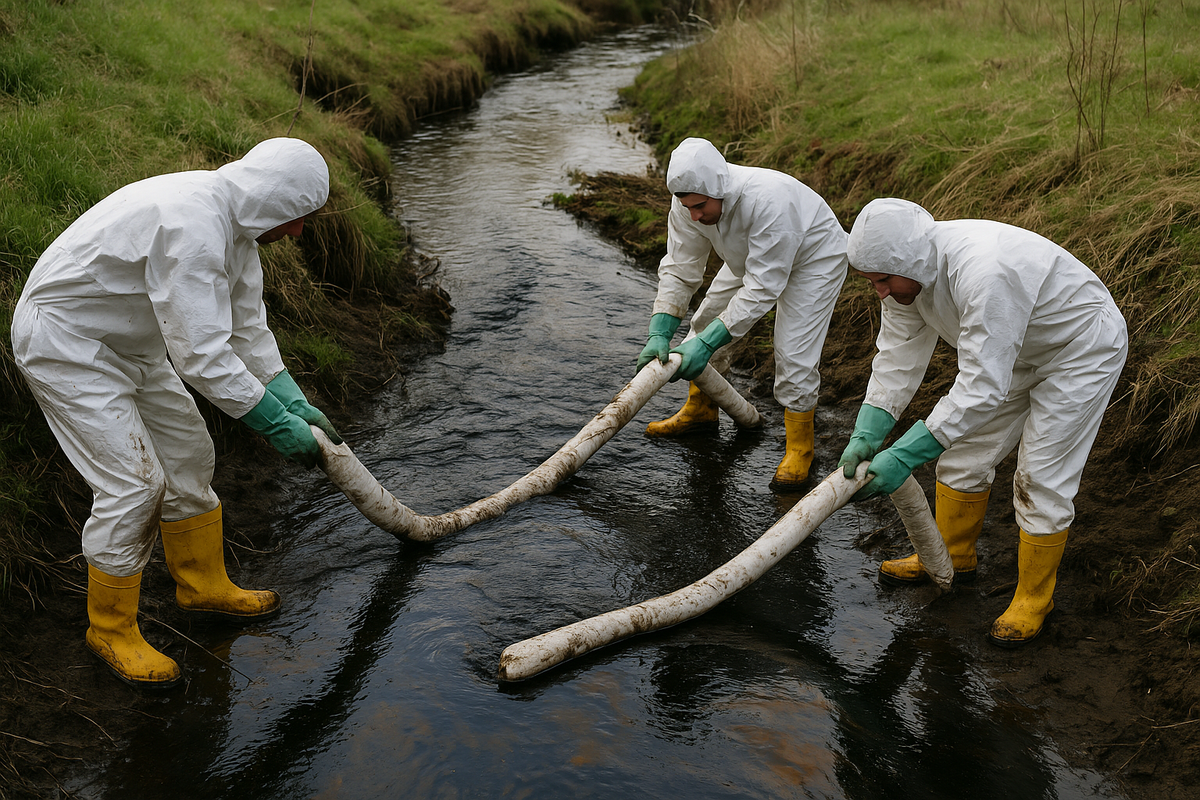
By Jenny Holly Hansen | WBN News | May 29, 2025
When you run a business, having comprehensive insurance is meant to give you peace of mind—confidence that if something goes wrong, you're protected. But one of the most overlooked limitations in many commercial general liability (CGL) policies is the pollution exclusion. This clause excludes coverage for any bodily injury, property damage, or cleanup costs that arise from the release or escape of pollutants. The definition of "pollutants" is surprisingly broad, often including substances like chemicals, fumes, vapors, smoke, waste materials, mould, and even common substances like oil or refrigerants.
This becomes a critical concern for businesses that work with or around these materials, even if pollution isn’t central to their operations. A cleaning company using strong solvents, an HVAC contractor dealing with refrigerants, or a restaurant improperly disposing of grease could all face significant liability if a spill or release occurs. And if the damage leads to a lawsuit or government-mandated cleanup, the standard liability policy may not respond at all.
Some industries are especially vulnerable to this exclusion. Construction companies, for example, may accidentally release buried contaminants during excavation. Manufacturers and processors often use chemicals that could be considered pollutants if they leak. Transportation and logistics firms risk diesel or fuel spills, while auto repair shops must manage oil, coolant, and solvents. Agriculture and landscaping businesses deal with fertilizer and pesticide runoff, and even waste management and recycling facilities face exposure to leaks and emissions. But the risk isn’t limited to these industries. Businesses in hospitality, education, or property management can also be affected—especially if they operate near sensitive environments or have outdated infrastructure that could cause a leak or release.
Despite the exclusion, there are ways to close this gap in protection. One of the most effective is purchasing Environmental Liability Insurance, also known as Pollution Legal Liability or Environmental Impairment Liability. These specialized policies can cover everything the pollution exclusion leaves out: cleanup costs, third-party lawsuits, and regulatory compliance expenses. Businesses should also implement strong pollution prevention practices—such as spill containment, equipment maintenance, and proper material storage—and document these efforts thoroughly.
Ultimately, the pollution exclusion is more than fine print. For many businesses, it represents a major financial risk. If you’re unsure whether your current policy leaves you exposed, now is the time to take a closer look. A conversation with a knowledgeable insurance broker can help clarify your coverage, identify any gaps, and recommend solutions that align with the real risks of your operation. Being proactive now can prevent costly surprises down the road.
Let’s Keep Talking:
Jenny is a business insurance broker with Waypoint Insurance. With 19 years experience, she will well versed in the technical aspects of business coverages.
She can be reached at 604-317-6755 or jholly-hansen@wbnn.news. Connect with Jenny on LinkedIn at https://www.linkedin.com/in/jenny-holly-hansen-365b691b/. Connect with Jenny at BlueSky: https://bsky.app/profile/jennyhollyhansen.bsky.social
Let’s Meet Up:
Jenny Holly Hansen is a cohost with Chris Sturges of the Langley Impact Networking Group. You are welcome to join us on Thursday’s from 4pm to 6pm at: Sidebar Bar and Grill: 100b - 20018 83A Avenue, Langley, BC V2Y 3R4
TAGS: #Jenny Holly Hansen #Protect Your Business



